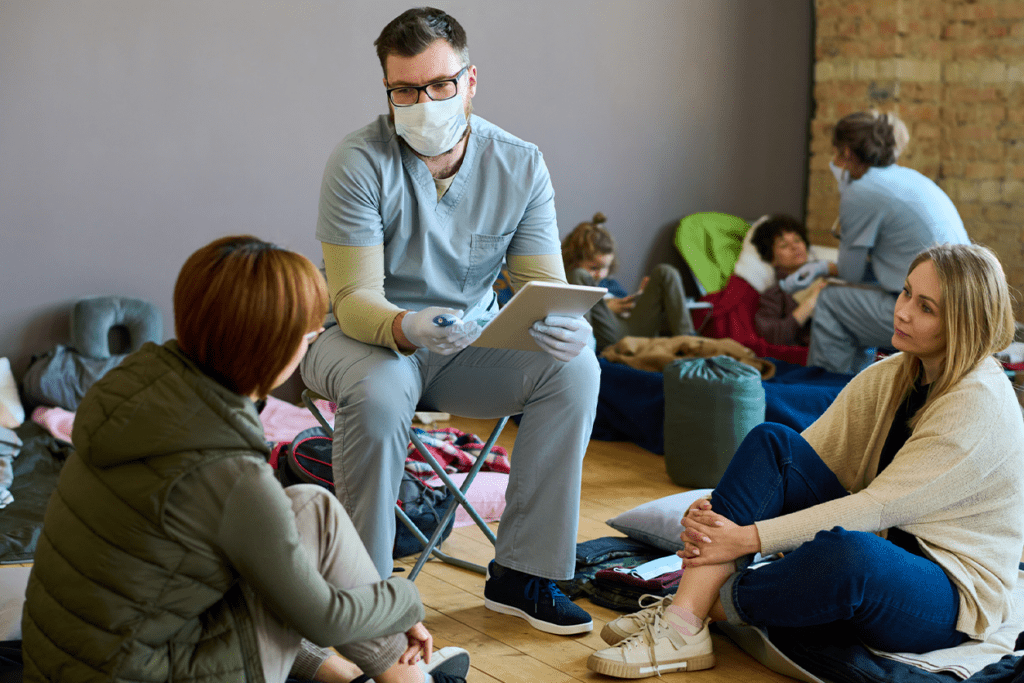
Novel care approaches like CLIA-waived point of care testing and telehealth can help diagnose and contain health conditions common to unhoused populations.
Rising housing prices and economic struggles across many parts of the country have resulted in rising numbers of people becoming homeless. The precise definition of “homeless” can vary but it is important to note that it does not only include people who lack any shelter. It also includes people living in shelters, transitional housing, doubled up with family or friends. or even staying in motels. The Department of Housing and Urban Development estimates that 653,104 people experienced homelessness across the country in 2023. About 6 in 10 of these individuals found shelter while the remaining 40 percent were unsheltered.
Health risks of the unhoused
Being homeless comes with significant health risks. Simultaneously, being without a home also creates additional challenges in accessing healthcare services. Living in congregate settings increases risk for being exposed to various respiratory infections, including influenza, COVID-19, and tuberculosis. CLIA-waived point of care testing can provide a critical service in diagnosing infections like influenza and COVID-19. It can also help in containment strategies to limit their spread in congregate settings.
Rates of injection drug use are higher in unhoused populations and this can increase risk for infections like HIV and Hepatitis C. CLIA-waived point of care testing can also help diagnose these infections and connect people to appropriate treatment options.
Homeless individuals are also at increased risk for various mental health conditions including depression, anxiety and post-traumatic stress disorder (PTSD). Connection to key resources like mental health therapists, addiction counselors, and psychiatrists can help manage these conditions and support people as they seek employment and housing.
Experience Primary’s novel care delivery
Using only traditional models of care delivery for this population is very limiting. That’s why it is critical to extend services through novel care delivery methods, including increased point of care testing and telehealth. Under Primary.Health’s CLIA waiver, trained staff at shelters and other congregate settings can do point-of-care testing without the need for a laboratory. We also offer the option of telehealth follow-up with our clinicians. Talk to our provider team and learn how easy it is to set up and manage large-scale point of care testing.
Disclaimer: This blog content and linked materials are not intended as individual medical advice, diagnosis or treatment, and should not be considered as such. Any readers with medical concerns should contact a licensed healthcare provider. This blog is provided for informational purposes only.
